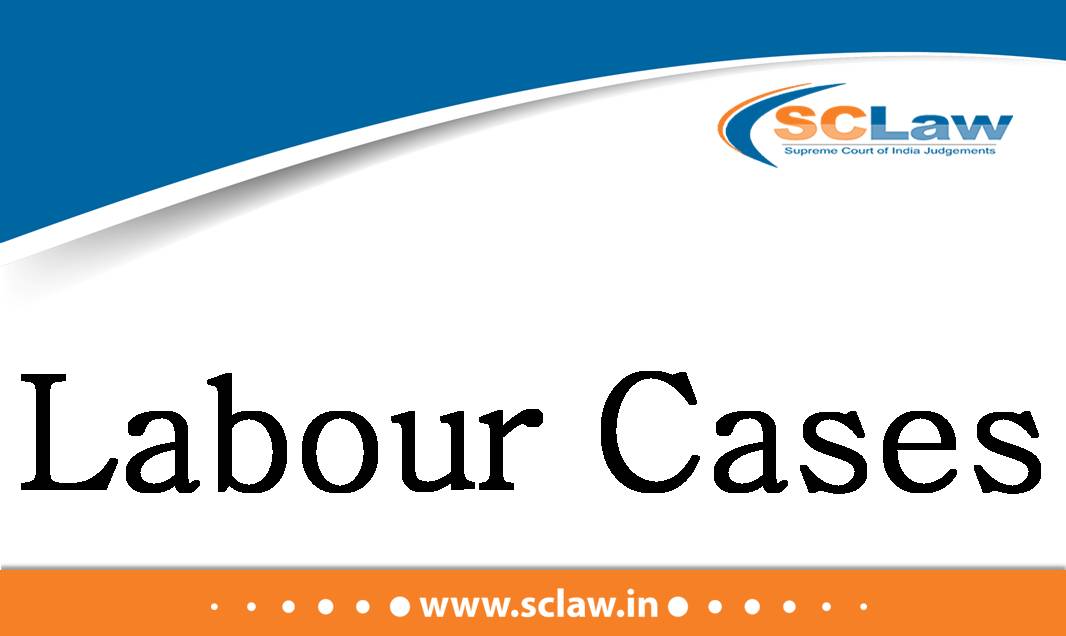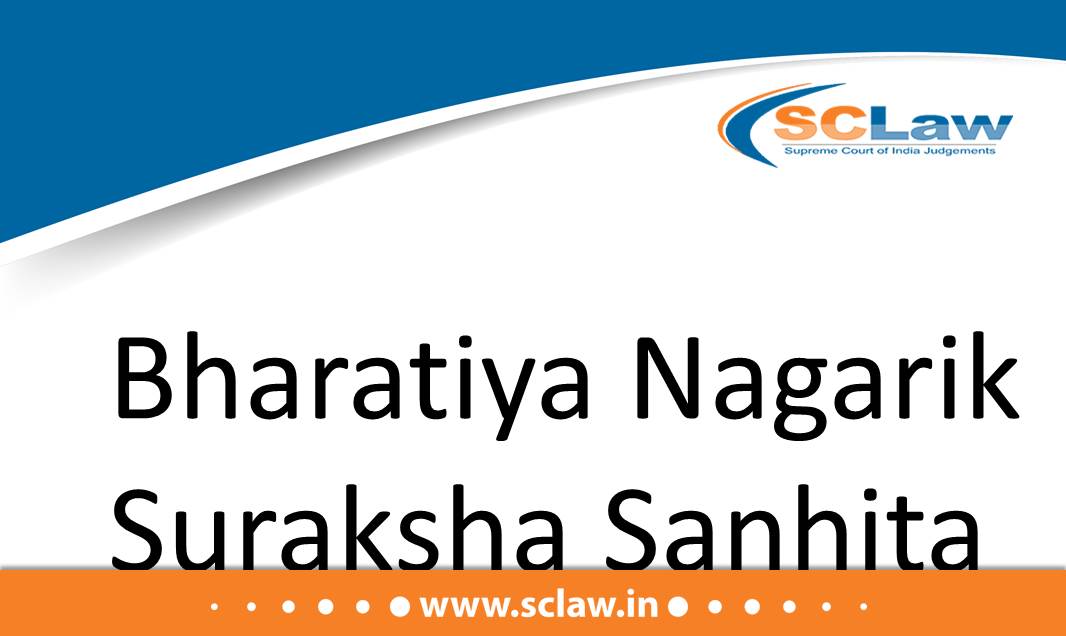Civil Procedure Code, 1908 — Order 7 Rule 11 — Rejection of plaint — Abuse of process — Family arrangement (KBPP) and Conciliation Award — Allegations of undue influence, coercion, misrepresentation, and fabrication — Grounds for challenge were distinct for KBPP and Award — Lower courts erred in rejecting plaint by treating documents as one Conciliation Award and dismissing allegations of fraud due to admitted execution of KBPP — Allegations of coercion need not be limited to life threat and can arise from subservience — Rejection of plaint was erroneous as prima facie cause of action disclosed, suit not vexatious or abuse of process.
2026 INSC 139 SUPREME COURT OF INDIA DIVISION BENCH J. MUTHURAJAN AND ANOTHER Vs. S. VAIKUNDARAJAN AND OTHERS ( Before : Sanjay Kumar and K. Vinod Chandran, JJ. ) Civil…
Bharatiya Nyaya Sanhita, 2023 — Section 108, 80, 103, 85 — Dowry Prohibition Act, 1961 — Sections 3, 4 — Offences — Abetment to suicide, Dowry death, Murder — Allegations of extra-marital relationship, demand of money/dowry — Deceased died of poisoning/injection — Autopsy findings — Prosecution case not strong at bail stage.
2026 INSC 83 SUPREME COURT OF INDIA DIVISION BENCH ABHIJIT PANDEY Vs. THE STATE OF MADHYA PRADESH AND ANOTHER ( Before : Prashant Kumar Mishra and N.V. Anjaria, JJ. )…
Industrial Disputes Act, 1947 — Section 33(1) — Requirement for employer to seek permission before altering service conditions or stopping work of workmen during pendency of dispute — Failure to do so constitutes a breach of the Act.
SUPREME COURT OF INDIA DIVISION BENCH M/S PREMIUM TRANSMISSION PRIVATE LIMITED Vs. KISHAN SUBHASH RATHOD AND OTHERS ( Before : Pankaj Mithal and S.V.N. Bhatti, JJ. ) Civil Appeal No.…
Industrial Disputes Act, 1947 — Sections 10(1), 12 — Reference of industrial dispute — Apprehended dispute — Appropriate Government’s power to refer — The appropriate Government has the power to refer an industrial dispute for adjudication if it is of the opinion that such dispute exists or is apprehended. The initiation of conciliation proceedings under Section 12 does not statutorily require a prior demand notice to the employer as a pre-condition to approaching the Conciliation Officer. The management’s argument that a prior demand notice is essential, based on certain previous judgments, fails as it ignores the provision for referring an apprehended dispute, which can be invoked to prevent industrial unrest
2026 INSC 87 SUPREME COURT OF INDIA DIVISION BENCH M/S PREMIUM TRANSMISSION PRIVATE LIMITED Vs. THE STATE OF MAHARASHTRA AND OTHERS ( Before : Pankaj Mithal and S.V.N. Bhatti, JJ.…
Bharatiya Nagarik Suraksha Sanhita, 2023 (BNSS) — Section 175(4) — Complaints against public servants alleged to have committed offenses in discharge of official duties — Interpretation — This provision is not a standalone provision, nor is it a proviso to Section 175(3) — It must be read in harmony with Section 175(3), with Section 175(4) forming an extension of Section 175(3) — The power to order investigation under Section 175(3) is conferred upon a judicial magistrate, while Section 175(4) also confers such power but prescribes a special procedure for complaints against public servants — The expression “complaint” in Section 175(4) does not encompass oral complaints and must be understood in the context of a written complaint supported by an affidavit, as required by Section 175(3) — This interpretation ensures that the procedural safeguard of an affidavit, mandated by Priyanka Srivastava v. State of U.P., is not undermined even when dealing with public servants — The intention is to provide a two-tier protection: first, at the threshold stage under Section 175(4) with additional safeguards, and second, at the post-investigation stage under Section 218(1) regarding previous sanction. (Paras 26, 31, 37.1, 37.2, 37.4, 37.5, 37.6, 37.8, 38, 39, 40, 42, 43, 44)
2026 INSC 88 SUPREME COURT OF INDIA DIVISION BENCH XXX Vs. STATE OF KERALA AND OTHERS ( Before : Dipankar Datta and Manmohan, JJ. ) Criminal Appeal No. 4629 of…
Criminal Procedure Code, 1973 (CrPC) — Section 164 — Recording of confession — Duty of Magistrate — Magistrate must inform the accused of their right to legal assistance before recording confession — Failure to do so can render the confession suspect — In this case, Magistrate failed to inform the accused of their right to a lawyer, contributing to the unreliability of the confession.
2026 INSC 85 SUPREME COURT OF INDIA DIVISION BENCH BERNARD LYNGDOH PHAWA Vs. THE STATE OF MEGHALAYA ( Before : Sanjay Kumar and K. Vinod Chandran, JJ. ) Criminal Appeal…
Land Acquisition — Setting aside of award — Grounds for — Excessive compensation, unjust enrichment, collusion with officials — Impact on entire acquisition — Held, setting aside an award for excessive compensation due to unjust enrichment and collusion does not automatically invalidate the entire acquisition award concerning all landowners.
2026 INSC 86 SUPREME COURT OF INDIA DIVISION BENCH NIRAJ JAIN Vs. COMPETENT AUTHORITY-CUM-ADDITIONAL COLLECTOR, JAGDALPUR AND OTHERS ( Before : Sanjay Kumar and K. Vinod Chandran, JJ. ) Civil…
Wakf Act, 1995 — Jurisdiction of Tribunal — Sections 6, 7, 83, 85 — Declaration of a property as waqf or not — Tribunal’s jurisdiction is confined to properties specified in the “list of Auqaf” (published under Section 5(2) or registered under Section 37) — Civil suits for injunction simpliciter regarding properties not in the list are not maintainable before the Tribunal.
2026 INSC 90 SUPREME COURT OF INDIA DIVISION BENCH HABIB ALLADIN AND OTHERS Vs. MOHAMMED AHMED ( Before : Sanjay Kumar and K. Vinod Chandran, JJ. ) Civil Appeal No….of…
Arbitration and Conciliation Act, 1996 — Section 29A(4) — Application for extension of time to make arbitral award — Where an arbitral tribunal is constituted by the High Court under Section 11(6), any application for extension of time under Section 29A(4) would lie with the High Court. Where an arbitral tribunal is constituted by the parties themselves under Section 11(2), the application under Section 29A(4) would lie before the Principal Civil Court of original jurisdiction in a district, which also includes the High Court in its ordinary original jurisdiction.
2026 INSC 92 SUPREME COURT OF INDIA DIVISION BENCH JAGDEEP CHOWGULE Vs. SHEELA CHOWGULE AND OTHERS ( Before : Pamidighantam Sri Narasimha and R. Mahadevan, JJ. ) Civil Appeal No(s).Of…
Advocates Act, 1961 — Section 38 — Appeal against Bar Council of India judgment — Professional misconduct — Failure to act with reasonable diligence and absence from Court hearing leading to dismissal of quashing petition — High Court ordered quashing of FIR subject to deposit of costs — Costs not deposited in time, FIR quashing order recalled and petition dismissed — Application to recall dismissal order allowed, quashing restored subject to enhanced costs — Compromise reached between advocate and complainant, misunderstanding about costs resolved — High Court waived enhanced costs — FIR quashed — Complainant filed affidavit withdrawing complaint due to misunderstanding about costs and expressing satisfaction with advocate’s services — Disciplinary Committee of Bar Council of India held advocate guilty of professional misconduct despite withdrawal affidavit — Supreme Court held that disciplinary committee ignored vital aspect of withdrawal affidavit and satisfaction of complainant — Substratum of complaint ceased to exist once dispute was resolved and withdrawn — Finding of professional misconduct unsustainable.
2026 INSC 94 SUPREME COURT OF INDIA DIVISION BENCH MONTY GOYAL Vs. NAVRANG SINGH ( Before : Vikram Nath and Sandeep Mehta, JJ. ) Civil Appeal No(s). 77 of 2026…

















